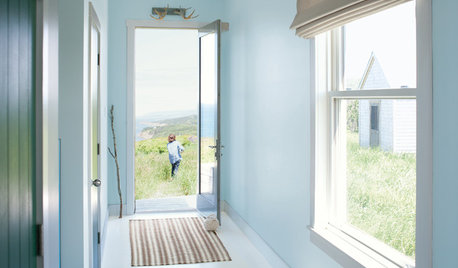Yeah, I mean youse. I've been hoarding brain cells all week to have candlepower to spare for this tour de force of botanic bombast that will shortly be unleashed for the weekend warriors among us.
Why, I pondered, do growers of all things orchid find it so fascinating to play with our plants beyond all limits of common decency? Wanna know what I think the reason is? I'm going to tell you anyway. It's because orchids aren't dirty enough. Suggest a quick peek at the roots of an African Violet for no good reason and you are likely to get a very strange look from its grower. All that mess, all that dirt to clean up. No such qualms about getting perverted with ones phal. The granular nature of the inorganic media and the fibrous nature of many others, not to mention the solid heft of large chunk media invite exploration.
So now we know why we do it. Question is: should we and if not, how can we stop? Well the answer to the first question depends on whom you ask. I am of the opinion that by and large one should not unpot an orchid except that one intends straightaway to repot it and that there should be a good reason for wanting to repot in the first place. No orchid likes to be repotted. Repotting is always a setback. Sometimes it is necessary to get fresh media into a pot because things have gone sour. I suggest a way of dealing with that in another post that will go out today, title as yet unknown.
Repotting should in general be a yearly event. Some orchids (cymbidium) resent even that and should only be repotted every two to three years. Just bought an orchid and think the mix is 'broken down'? I don't think so. Modern orchid mixes are capable of lasting much longer than you or I have patience. I know, I know, I am taking all the fun out of growing these plants! Someone around here had a saying, I paraphrase it here. "If you have time and energy to 'fuss' with your orchids you do not have enough of them". There is some truth to that.
What about the fact that valuable information can be gleaned about the state of health of a sick plant by looking at its roots? What about it? Seems to me that if you are contemplating this you already suspect the orchid is ill. How did you come to that determination? Probably by using the same clues I do when checking out a new purchase in the store. I can take 15, even 30 minutes going between several plants of similar size and health trying to chose the best one for my collection. You look for the best color of foliage, absence (or minimal amount) of blemishes, some slight edge in development over the others, a spike. All these things say "fitness" to us and after all that selection process why am I going to take this specimen of Paph perfection and perturb its propriety by peering into its private places? I do not, I respectfully submit that you should not want to either.
When a plant is ill you know it, the leaves are lackluster, often blemished, yellowing. There may be advancing rot somewhere. You would reject such a plant were it offered for sale. Why do you need to look at its roots? Again, I do not, but others disagree, feeling that such inspections are a must. I would have no problem with their choice except it often leads to shock and horror on the part of the explorer who then goes into a frenzy of root pruning that doesn't end until four or fewer 'healthy' roots are left to support hundreds or square inches of leaf surface.
When I buy a new plant I spend as long as I can selecting the healthiest, most blemish free and aggressively developed specimen I can from the choices. I then 'assume' that the roots that I cannot see are at least as healthy as the foliage that I can see. Should problems develop down the line I always assume that it is/was something I did wrong. Such thinking has not yet failed me (that I know) in too many years of growing orchids.
Orchids are not high maintenance, labor intensive, investments of time and money. Much of their care can be automated making them ideal for musicians, itinerant preachers, airline pilots and others with time issues. They do not appreciate fuss. They are easily killed with kindness. No twelve step programs exist to help the obsessive compulsive pot peeper but if you have the urge to peep you just might want to post to me. I'll be your sponsor and talk you down. Don't thank me, I'm not doing it for you. I'm doing it for your orchids.
H
















richardol
paul_
Related Discussions
Lookin for Yvonne's Salvia seed
Q
lookin4you2xist -please contact
Q
Saaaayyy...How many of you are lookin' Wintry!?
Q
Brenda? You Lookin' For me?
Q
howard_aOriginal Author
t_bred
littlem_2007
claritamaria
jane__ny
xmpraedicta